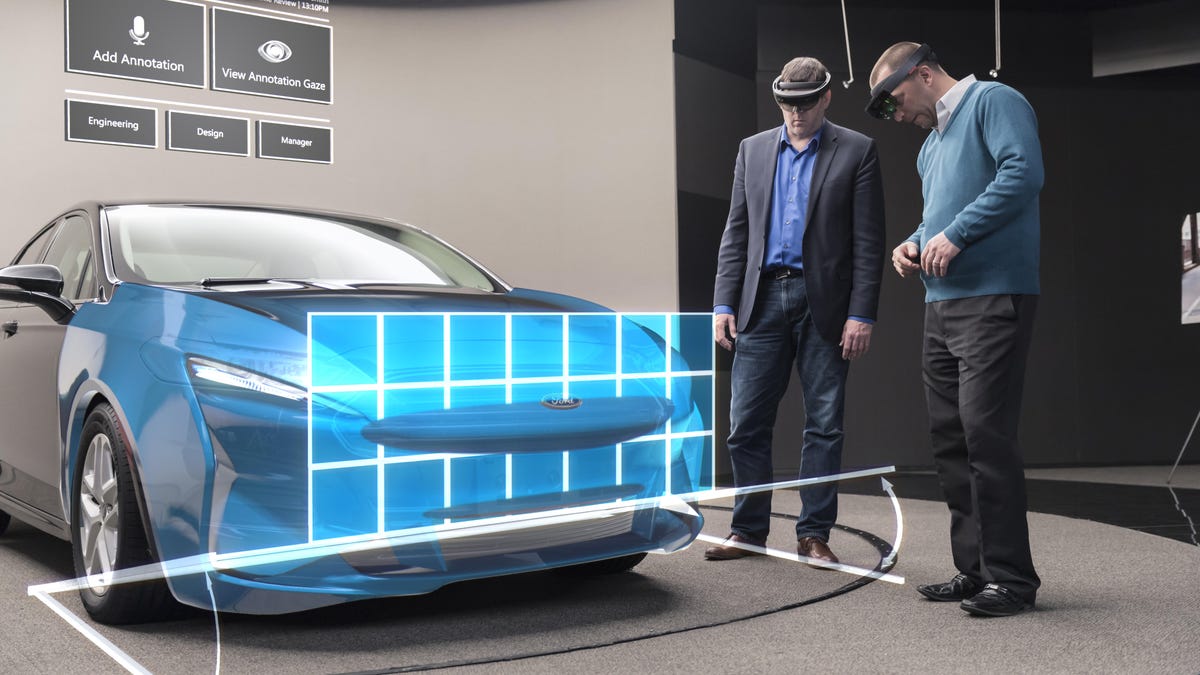Google may be working on a standalone AR headset
Apple and Samsung are doing it, so it wouldn't be surprising if Google is.

Because of their expense, wireless AR headsets like the Microsoft HoloLens are used commercially.
A project codenamed Google A65 is thought to be a standalone AR headset, and now we may have more details about it.
German news site Winfuture.de says it has documents that indicate Google's working with Taiwanese manufacturer Quanta on the augmented reality headset. Google's previously worked with Quanta on the Pixel C tablet. The headset is expected to include camera sensors and microphones -- the latter aren't common on the VR and mixed-reality headsets out today. Chances are the mics are there so you can operate the headset with Google Assistant.
The headset is supposedly based on a custom quad-core internet-of-things-focused Qualcomm QSC603 based off the ARM Cortex-A75. The QSC603 supports up to 2,560 x 1,440 resolution (WQHD), 1080p and 1030p video capture, 3D overlays and rendering interfaces OpenGL, OpenCL and Vulcan, along with Gigabit wireless, Bluetooth 5.1 and GPS. It also supports the Android Neural Networks API.
At this point, AR headsets still need to be wired to a computer. Wireless VR and mixed-reality headsets are just becoming available, most notably the Oculus Go, Lenovo's Google-powered Mirage Solo and the Windows Mixed Reality crew. There are a host of AR headsets in development, or rumored to be in development, from companies like Apple and Samsung and the Magic Leap One. Of course, Google's most notable competitor in the AR arena is probably the Microsoft HoloLens, which is predominantly used for commercial applications.
Google didn't immediately respond to a request for comment.

